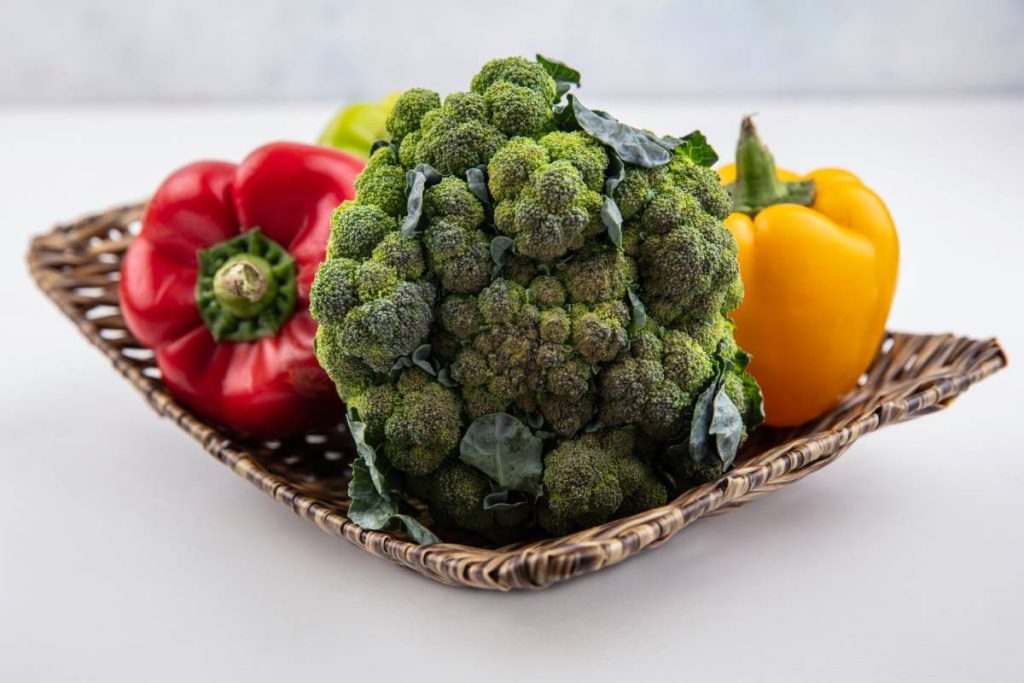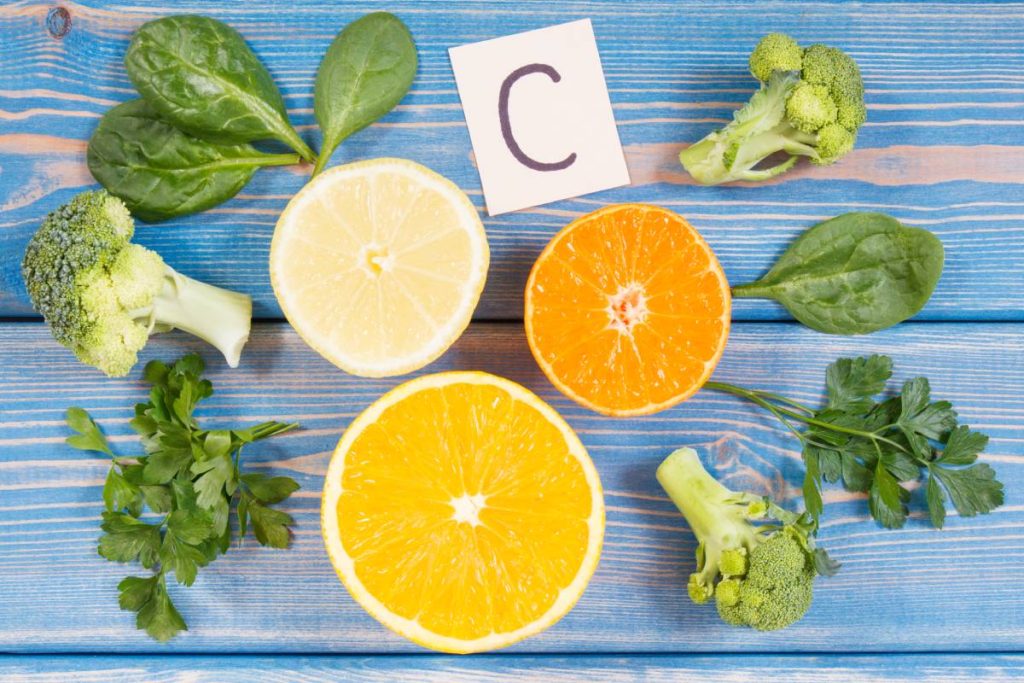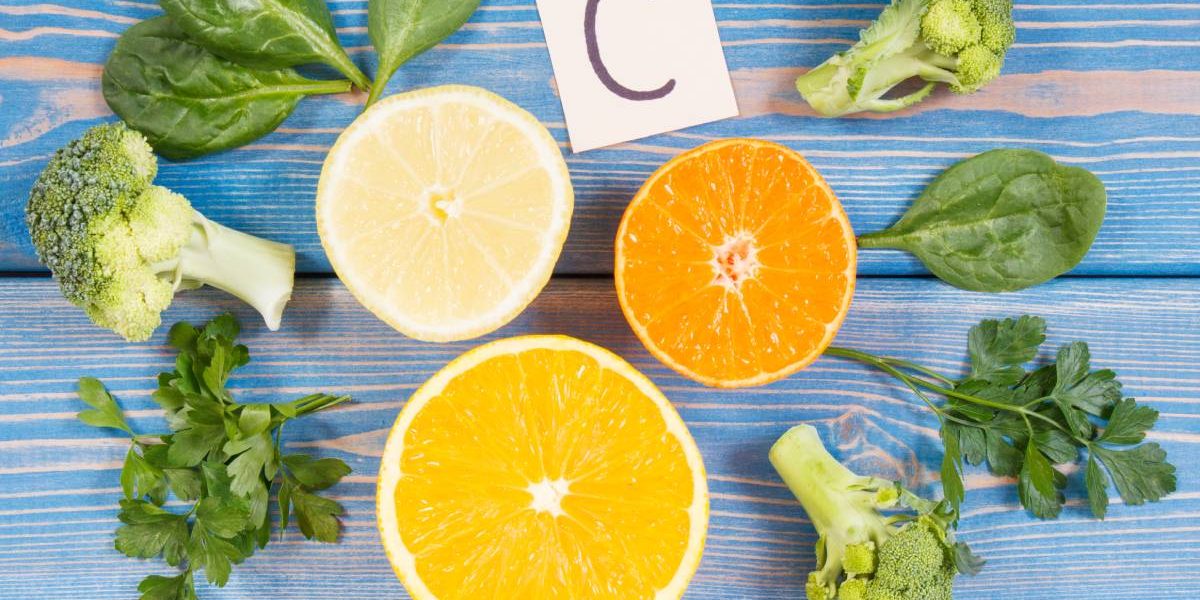
Vitamin C, a water-soluble powerhouse, is an essential nutrient that plays a crucial role in maintaining our overall health. From bolstering our immune system to supporting collagen production and acting as a potent antioxidant, its benefits are diverse and impactful. As we delve into the importance of vitamin C, this exploration will focus on its varied roles and the delightful array of foods that serve as rich sources of this vital nutrient.

For what is vitamin C good for?
Vitamin C, also known as ascorbic acid, is a crucial nutrient that plays a variety of essential roles in maintaining good health. This water-soluble vitamin is well-known for its immune-boosting properties, but its benefits extend far beyond just that. Let’s delve into what makes vitamin C so important and the various ways it contributes to our well-being.
1. Immune System Support: One of the primary and well-known benefits of vitamin C is its role in supporting the immune system. It acts as an antioxidant, helping to protect cells from damage caused by free radicals. By doing so, vitamin C enhances the body’s ability to fight off infections and illnesses, keeping the immune system strong and resilient.
2. Collagen Production: Vitamin C plays a pivotal role in the synthesis of collagen, a protein that provides structure to our skin, bones, blood vessels, and other connective tissues. Collagen is essential for wound healing, skin elasticity, and overall tissue repair. Including sufficient vitamin C in your diet promotes healthy skin and aids in the maintenance of a youthful appearance.
3. Antioxidant Defense: As an antioxidant, vitamin C helps neutralize free radicals, which are unstable molecules that can cause damage to cells. This protective function is not only beneficial for the immune system but also contributes to reducing the risk of chronic diseases, including heart disease and certain cancers.
4. Iron Absorption: Vitamin C enhances the absorption of non-heme iron (the type of iron found in plant-based foods) from the digestive tract. This is particularly important for individuals who follow a vegetarian or vegan diet, as it helps optimize iron uptake and prevents iron deficiency anemia.
5. Mood and Stress Regulation: Some studies suggest that vitamin C may have a role in mood regulation and stress reduction. It is involved in the production of neurotransmitters, such as serotonin, which can impact mood and emotional well-being. While more research is needed in this area, maintaining adequate levels of vitamin C is considered beneficial for mental health.
6. Cardiovascular Health: Vitamin C contributes to cardiovascular health by supporting the function of blood vessels and reducing the risk of heart disease. It helps maintain the flexibility of arteries and supports the dilation of blood vessels, promoting healthy blood flow and blood pressure.
7. Eye Health: This vitamin is associated with a lower risk of age-related macular degeneration (AMD), a condition that can lead to vision loss in older adults. By acting as an antioxidant in the eyes, vitamin C helps protect against oxidative damage and supports overall eye health.
8. Common Cold Prevention and Relief: While vitamin C may not completely prevent the common cold, it has been shown to reduce the duration and severity of symptoms. Regular intake of vitamin C, especially during the cold and flu season, can contribute to a quicker recovery.
In Conclusion: In summary, vitamin C is a versatile nutrient with a wide range of benefits. From supporting the immune system and collagen production to acting as an antioxidant and aiding in iron absorption, its positive impact on overall health is undeniable. Including vitamin C-rich foods, such as citrus fruits, berries, peppers, and leafy greens, in your diet can help ensure you reap the many advantages this essential vitamin has to offer.

Is it OK to have vitamin C everyday?
Absolutely, it is generally safe and even beneficial to include vitamin C in your daily routine. Vitamin C is a water-soluble vitamin, which means your body doesn’t store it, and you need a regular supply to meet your daily requirements. Let’s explore why incorporating vitamin C into your daily diet is a good idea and how it can positively impact your health.
1. Essential Nutrient: Vitamin C is an essential nutrient, meaning our bodies cannot produce it on their own, and we must obtain it through our diet. Daily consumption is crucial because the body doesn’t store excess vitamin C for future use. Including vitamin C-rich foods or supplements in your daily intake ensures that your body has a consistent supply of this vital nutrient.
2. Immune System Support: Regular intake of vitamin C is associated with enhanced immune system function. It acts as an antioxidant, helping the body combat free radicals and supporting the immune response. By incorporating vitamin C into your daily routine, you can provide ongoing support to your immune system, helping to defend against infections and illnesses.
3. Collagen Synthesis: Vitamin C is a key player in collagen synthesis, a process vital for maintaining healthy skin, blood vessels, bones, and connective tissues. Including vitamin C in your daily diet supports the continuous production of collagen, contributing to skin elasticity, wound healing, and overall tissue repair.
4. Antioxidant Defense: As a powerful antioxidant, vitamin C helps protect cells from oxidative stress caused by free radicals. Including it in your daily routine aids in neutralizing these harmful molecules, reducing the risk of chronic diseases and supporting overall well-being.
5. Heart Health: Regular consumption of vitamin C has been linked to cardiovascular health. It promotes the dilation of blood vessels, helps maintain their flexibility, and supports healthy blood flow. Including vitamin C in your daily routine may contribute to a lower risk of heart disease.
6. Iron Absorption: For individuals with plant-based diets, vitamin C is particularly valuable. It enhances the absorption of non-heme iron from plant sources, preventing iron deficiency anemia. Including vitamin C-rich foods with iron-containing plant foods in your daily meals optimizes iron uptake.
7. Mood and Stress Management: While more research is needed, some studies suggest that vitamin C may play a role in mood regulation and stress reduction. Including vitamin C in your daily routine could potentially have positive effects on mental well-being by supporting the production of neurotransmitters like serotonin.
8. Safe and Well-Tolerated: Vitamin C is generally safe and well-tolerated when consumed within recommended levels. Excessive intake may lead to digestive discomfort in some individuals, but this is usually temporary. As with any supplement, it’s wise to consult with a healthcare professional to determine the appropriate daily dosage for your individual needs.
In Conclusion: Incorporating vitamin C into your daily routine is not only safe but also highly beneficial. Whether through a balanced diet rich in vitamin C or with the help of supplements, providing your body with a daily dose of this essential nutrient supports various aspects of health, from immune function and collagen synthesis to heart health and stress management. As always, moderation and consultation with a healthcare professional are key to ensuring you meet your specific vitamin C needs.

What food is high in vitamin C?
Ensuring you get an ample supply of vitamin C is essential for maintaining good health, and fortunately, there’s a wide array of delicious and accessible foods that are rich in this vital nutrient. Let’s explore some of the best sources of vitamin C, making it easy for you to incorporate them into your daily diet.
1. Citrus Fruits: Citrus fruits are renowned for their high vitamin C content. Oranges, grapefruits, lemons, and limes are excellent choices. A single medium-sized orange, for example, can provide your entire recommended daily intake of vitamin C.
2. Berries: Berries, such as strawberries, blueberries, raspberries, and blackberries, are not only delicious but also packed with vitamin C. These colorful fruits can be easily added to yogurt, cereals, or enjoyed on their own as a snack.
3. Kiwi: Kiwi is a small fruit with a powerful punch of vitamin C. Eating one medium-sized kiwi gives you more vitamin C than an orange. It also provides dietary fiber and other essential nutrients.
4. Bell Peppers: Colorful bell peppers, especially the red ones, are rich in vitamin C. They make a tasty addition to salads, stir-fries, and sandwiches. Snacking on raw bell pepper slices is a crunchy and nutritious option.
5. Broccoli: Broccoli is a versatile vegetable that not only adds a nutritional boost to your meals but is also an excellent source of vitamin C. Whether steamed, roasted, or added to a stir-fry, broccoli is a delicious way to enhance your vitamin C intake.
6. Pineapple: Pineapple is a tropical fruit that brings a sweet and tangy flavor to the table along with a good dose of vitamin C. Fresh pineapple chunks, pineapple salsa, or even a refreshing pineapple smoothie can be enjoyable ways to incorporate this fruit into your diet.
7. Mango: Mangoes are not only a delightful tropical treat but also a fantastic source of vitamin C. Enjoy them on their own, add them to fruit salads, or blend them into a tasty mango smoothie.
8. Brussels Sprouts: Brussels sprouts may not be everyone’s favorite, but they’re worth considering for their nutritional benefits, including a significant amount of vitamin C. Roasting or sautéing them can enhance their flavor.
9. Tomatoes: Tomatoes, whether eaten fresh or in the form of tomato-based products like salsa or tomato sauce, provide a good dose of vitamin C. They are also rich in other antioxidants, promoting overall health.
10. Cantaloupe: Cantaloupe is a refreshing melon that adds natural sweetness and a hefty supply of vitamin C to your diet. Enjoy it in slices or as part of a fruit salad.
11. Spinach: Dark leafy greens like spinach contribute not only iron but also vitamin C to your diet. Incorporate spinach into salads, smoothies, or sauté it as a side dish to benefit from its nutritional value.
12. Guava: Guava is a tropical fruit that surpasses many other fruits in its vitamin C content. Enjoy it fresh or incorporate it into fruit salads and smoothies for a tropical twist.
In Conclusion: Ensuring a diverse and colorful diet with these vitamin C-rich foods is a simple and tasty way to meet your nutritional needs. By incorporating a variety of fruits and vegetables into your meals, you not only enhance your vitamin C intake but also benefit from a wide range of other essential nutrients that contribute to overall health and well-being. Whether snacking on berries, enjoying a citrusy salad, or savoring a tropical fruit, there are plenty of delicious options to boost your vitamin C levels and promote a healthy lifestyle.

Conclusion:
In conclusion, the evidence is clear — making vitamin C a part of our daily routine is not only safe but also immensely beneficial. From enhancing our immune defenses to promoting collagen synthesis and offering antioxidant protection, the roles of vitamin C are diverse and impactful. The wide array of foods rich in vitamin C ensures that meeting our nutritional needs can be a delicious and enjoyable endeavor. So, whether you’re savoring a citrusy snack, indulging in vibrant berries, or relishing the goodness of colorful vegetables, you’re not just treating your taste buds but also fortifying your health. Embrace the abundance of vitamin C-rich foods, and let the vibrant spectrum of flavors pave the way to a healthier, more resilient you.
Last modified: December 25, 2023
[mc4wp_form id="5485"]










